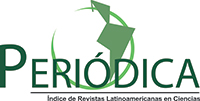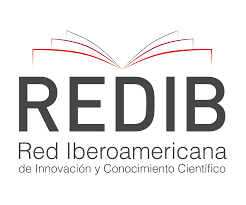CALGARY FAMILY ASSESSMENT MODEL: WOMEN IN SITUATIONS OF VIOLENCE AND REVOCATION OF PROTECTIVE MEASURES
DOI:
https://doi.org/10.1590/ce.v29i0.95203Palavras-chave:
Domestic Violence, Family, Women, Family Relations, Nursing.Resumo
Objective: To understand the strengths and weaknesses of the families of women in situations of violence who have had their emergency protective measures revoked.
Method: descriptive research based on the Calgary Family Assessment Model, in the context of a Women's Police Station in a municipality in the interior of São Paulo, Brazil, carried out between September and November 2021, with four families of women who revoked the protective measure. Family structure, development, and functionality data were collected and analyzed according to the Calgary Model.
Results: the families have similarities that include socio-economic aspects, low schooling, alcohol use, conflicting family relationships, and transgenerational relationships that, due to their fragility, perpetuate the cycle of violence. However, the social benefits, religious support, and family members were strengths.
Conclusion: The Calgary Family Assessment Model guides nurses in proposing care plans consistent with domestic violence's complexities.
Downloads
Publicado
Como Citar
Edição
Seção
Licença
A Cogitare Enfermagem se reserva no direito de efetuar, no artigo publicado, alterações de ordem normativa, ortográfica e gramatical, com vistas a manter o padrão culto da língua, respeitando, porém, o estilo dos autores.
O estudo publicado é de inteira responsabilidade do(s) autor(es), cabendo exclusivamente à Cogitare Enfermagem a avaliação do manuscrito, na qualidade de veículo de publicação científica. Não será permitido acréscimo ou mudança de autoria durante a etapa de avaliação ou após aceite do texto submetido.
A Cogitare Enfermagem não se responsabiliza por eventuais violações à Lei nº 9.610/1998, Lei Brasileira de Direitos Autorais.
A Cogitare Enfermagem permite que o autor detenha o copyright dos artigos aceitos para publicação, sem restrições.
Propriedade Intelectual e Termos de uso
Responsabilidade do Autor:
Quanto a autoria, os autores necessitam especificar, na página de identificação, qual o tipo de contribuição individual que exerceu durante a elaboração do artigo. Conforme os critérios estabelecidos pelo ICMJE disponível em: http://www.icmje.org/recommendations/browse/roles-and-responsibilities/defining-the-role-of-authors-and-contributors.html .
É importante destacar que são considerados quatro critérios mínimos de autoria, e todos aqueles designados como autores devem atendê-los, são eles:
- Contribuições substanciais para a concepção ou desenho do estudo; ou a aquisição, análise ou interpretação de dados do estudo;
- Elaboração e revisão crítica do conteúdo intelectual do estudo;
- Aprovação da versão final do estudo a ser publicado;
- Responsável por todos os aspectos do estudo, assegurando as questões de precisão ou integridade de qualquer parte do estudo.
Não será permitido acréscimo ou mudança de autoria durante a etapa de avaliação ou após aceite do texto submetido.
Os artigos publicados estarão licenciados sob a licença Creative Commons CC BY 4.0 Creative Commons — Attribution 4.0 International — CC BY 4.0 – A atribuição adotada pela Cogitare Enfermagem é permitida:
- Compartilhar – copiar e redistribuir o material em qualquer mídia ou formato;
- Adaptar – remixar, transformar e construir sobre o material para qualquer finalidade, mesmo comercialmente;
- Atribuição — Você deve atribuir o devido crédito, fornecer um link para a licença, e indicar se foram feitas alterações. Você pode fazê-lo de qualquer forma razoável, mas não de uma forma que sugira que o licenciante o apoia ou aprova o seu uso;
- Sem restrições adicionais — Você não pode aplicar termos jurídicos ou medidas de caráter tecnológico que restrinjam legalmente outros de fazerem algo que a licença permita.
Responsabilidade do Site:
A Cogitare Enfermagem encoraja os Autores a arquivar seus manuscritos aceitos, publicando-os em blogs pessoais, repositórios institucionais e mídias sociais acadêmicas, bem como postando-os em suas mídias sociais pessoais, desde que seja incluída a citação completa à versão do website da revista.”























